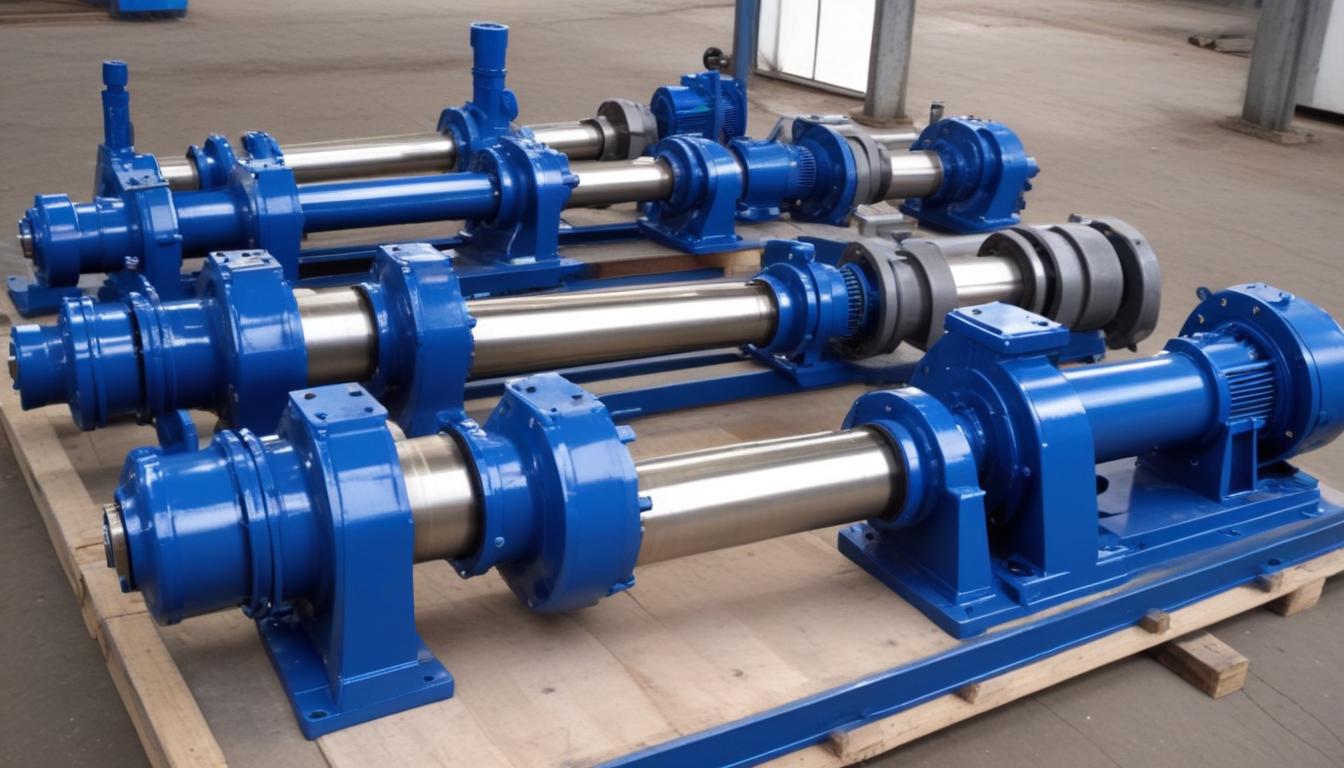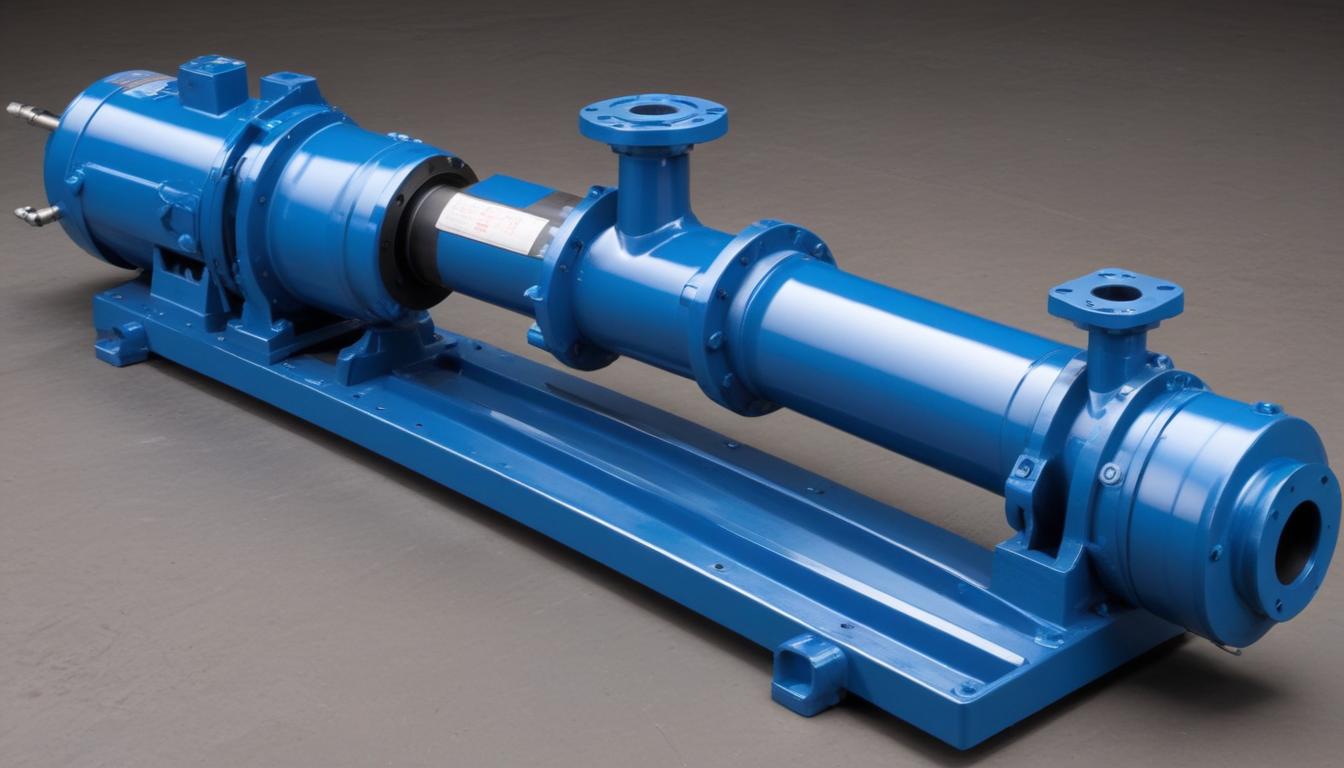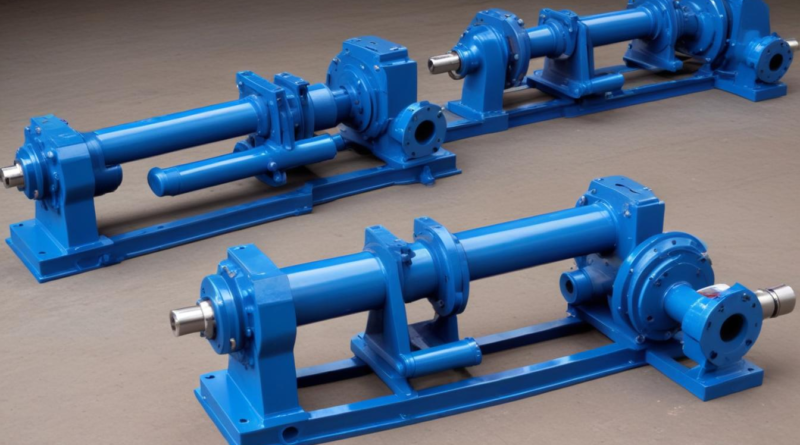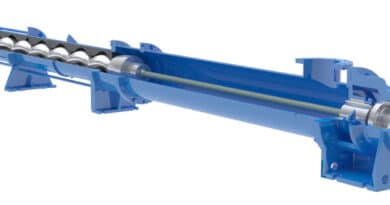Top manufacturers of progressive cavity pumps
Progressive cavity pumps, known for their ability to handle viscous fluids and maintain a consistent flow rate, have a competitive market landscape featuring several prominent manufacturers. The top brands in the industry are recognized for their technologic advancements, quality construction, and customer-centric designs. These manufacturers invest heavily in research and development to enhance the efficiency and reliability of their progressive cavity pumps.
Some of the leading manufacturers in the field include:
- GEA Group AG – Known for a wide range of solutions, GEA offers robust progressive cavity pumps suitable for various applications, including food and beverage processing.
- Netzsch Pumpen & Systeme GmbH – Specializing in cavity pumps designed for the pharmaceutical and chemical industries, Netzsch combines innovation with performance.
- Pump Solutions Group (PSG) – A leading player with several brands under its umbrella, PSG delivers customized solutions using progressive cavity technology across multiple sectors.
- HRS Heat Exchangers – Their progressive cavity pumps are designed primarily for thermal processing applications, focusing on heat recovery and energy efficiency.
- Excellence Pump Industry Co., Ltd. – This manufacturer is known for high-quality, cost-effective pumps tailored for various industrial processes.
These manufacturers not only dominate the market with their reliable products but also prioritize customer support and service, ensuring that users can optimize their pumping processes effectively. The continual evolution in the designs of progressive cavity pumps allows these brands to cater to the fast-evolving needs of industries such as oil and gas, water treatment, and food processing, thus reinforcing their leadership positions in the market.
Market overview of progressive cavity pumps
The market for progressive cavity pumps has been experiencing significant growth, driven by increasing demand across various industries. These pumps are particularly favored for their ability to handle a wide range of viscosities, a critical factor for industries such as oil and gas, food processing, and wastewater treatment. The global market is characterized by a mix of well-established players and emerging companies, each striving to innovate and enhance their offerings.
According to recent market analysis, it is estimated that the progressive cavity pump market will reach a substantial valuation over the next few years, with a compound annual growth rate (CAGR) projected at X% from 202X to 202Y. This growth can be attributed to several key factors:
- Increased industrialization in developing regions, leading to a rising need for efficient material handling and processing solutions.
- Technological advancements and innovations in pump design that improve operational efficiency and reduce maintenance costs.
- Growing awareness of energy efficiency and sustainability, prompting industries to adopt equipment that minimizes environmental impact.
- Expanding applications of progressive cavity pumps in sectors like pharmaceuticals, chemicals, and food & beverage, where precision and reliability are paramount.
Additionally, customer demand for customization and bespoke solutions is driving manufacturers to innovate. Many top brands are now incorporating features that enhance the adaptability of progressive cavity pumps, such as variable speed drives and advanced monitoring systems to provide real-time data analytics.
The competitive landscape remains fierce, with manufacturers competing on the bases of price, quality, and service. Companies with strong after-sales support and a comprehensive service portfolio tend to have an edge, as these attributes are critical to users seeking long-term operational reliability. Understanding the specific needs of different applications is paramount for manufacturers aiming to maintain or enhance their market share.
The landscape of the progressive cavity pump sector is expected to evolve significantly, influenced by regulatory changes and advancements in materials science leading to the development of pumps capable of managing even more challenging fluids. As industries continue to evolve and expand, the demand for these specialized pumps will undoubtedly accelerate, positioning the market for ongoing growth and innovation.
Key manufacturers and their product offerings

When examining the key manufacturers and their product offerings in the realm of progressive cavity pumps, it is essential to highlight how these companies differentiate themselves through innovation, specialization, and the breadth of their product lines. Each manufacturer not only excels in producing reliable pumps but also tailors their solutions to meet specific industry demands, ensuring optimal performance across diverse applications.
Here is an overview of notable manufacturers, along with their respective product offerings:
| Manufacturer | Product Lines | Specialization |
|---|---|---|
| GEA Group AG | Gea Niro, Gea Varitop series | Food & beverage, dairy processing |
| Netzsch Pumpen & Systeme GmbH | NEMO Progressive Cavity Pumps | Pharmaceutical and chemical applications |
| Pump Solutions Group (PSG) | Almatec, Wilden series | Custom solutions across various sectors |
| HRS Heat Exchangers | HRS Progressive Cavity Pumps | Thermal processing, heat recovery |
| Excellence Pump Industry Co., Ltd. | EP series of progressive cavity pumps | Industrial processes, wastewater management |
Each of these top brands integrates advanced technology with a focus on durability and efficiency. For instance, Netzsch’s NEMO series is known for its ability to handle a wide range of viscosities while ensuring low shear, making it ideal for sensitive materials in pharmaceutical manufacturing. Meanwhile, GEA Group’s pumps are engineered for hygienic applications, ensuring compliance with industry regulations while maximizing product quality.
The emphasis on innovation is evident as well, with many manufacturers introducing features such as smart monitoring systems and energy-efficient drives. For example, advanced models from PSG come equipped with integrated sensors that facilitate real-time monitoring of operational parameters, thereby enhancing reliability and reducing downtime.
As progressive cavity pumps continue to evolve, manufacturers are also focusing on sustainability by using recyclable materials and optimizing designs to reduce energy consumption during operation. Such commitments not only appeal to environmentally conscious sectors but also align with global trends towards greener manufacturing practices.
The competitive landscape of progressive cavity pump manufacturing is vibrant, with key players continuously pushing the bounds of technology while offering tailored solutions that cater to the unique demands of various industries. This dedication to innovation and customer-centric design solidifies their positions as leaders in the market.
Innovations in progressive cavity pump technology
Innovation in the realm of progressive cavity pumps has become a focal point for manufacturers striving to enhance performance, efficiency, and usability. As industries demand more from their pumping solutions, manufacturers are rising to the challenge by integrating cutting-edge technologies and design principles that improve the functionality of these systems. One area of noteworthy advancement is the introduction of smart technology, which provides real-time monitoring and control capabilities. This innovation enables users to closely track performance metrics such as flow rate, pressure, and energy consumption, facilitating better decision-making and maintenance planning.
Another significant leap forward is the development of energy-efficient models. Many top brands are now producing progressive cavity pumps that are optimized for lower energy consumption, which is crucial for reducing operating costs in an era where energy prices are fluctuating. By employing enhanced motor technologies and variable frequency drives, these pumps can adjust their operating conditions dynamically, ensuring that they only use the energy necessary for the application at any given time.
Furthermore, advancements in material science have led to the creation of durable pump components that can withstand harsh operating environments. New composite materials and coatings have been engineered to resist corrosion and wear, extending the lifespan of progressive cavity pumps and reducing maintenance requirements. These innovations align with the growing demand for reliability, particularly in critical applications such as chemical processing and wastewater management, where pump failure can result in significant operational disruptions and financial losses.
Manufacturers are also focusing on modular designs which simplify the maintenance process. These designs allow for swift disassembly and reassembly of components without the need for specialized tools, enabling engineers to perform repairs or replacements quickly and efficiently. This design strategy enhances the pump’s serviceability and minimizes downtime, thereby increasing overall operational effectiveness.
Lastly, the incorporation of predictive maintenance technology represents a significant innovation trend. By leveraging data analytics and IoT-enabled devices, manufacturers can now offer pumps equipped with sensors that collect operational data. This information can be analyzed to predict potential failures before they occur, allowing for timely interventions that can prevent costly downtimes and enhance the overall reliability of the pumping systems.
Overall, the drive for innovation within the progressive cavity pump industry is not just about enhancing product performance; it also reflects the broader trends towards sustainability, efficiency, and operational excellence in engineering applications. As this sector continues to evolve, it stands to significantly impact how fluids are handled across a multitude of industries.
Applications and industries utilizing progressive cavity pumps

Progressive cavity pumps have found extensive applications across various industries due to their versatile design and ability to efficiently handle fluids with varying viscosities. These pumps are particularly valued in sectors that require precise, consistent flow rates and the capability to manage complex fluid characteristics. The unique operational principles of progressive cavity pumps make them ideal for a wide range of applications, including:
- Food and Beverage Industry: In this sector, progressive cavity pumps are used for transferring products like sauces, cheese, and dough with minimal shear forces. Their capacity for self-priming and handling of viscous materials makes them a preferred choice for hygienic processes, ensuring compliance with strict health regulations.
- Wastewater Treatment: Progressive cavity pumps are employed in both the transportation of sludge and the metering of chemicals during treatment processes. Their ability to perform consistently under challenging conditions, such as varying fluid compositions, allows for reliable operation even in high solids environments.
- Petroleum and Gas: These pumps facilitate the transfer of crude oil and other viscous hydrocarbons, playing a critical role in the oil extraction and refining processes. Their durability ensures they can withstand the harsh conditions often present in oil and gas applications.
- Pharmaceutical Sector: Due to their precision, progressive cavity pumps are utilized in the manufacture of medications, ensuring accurate dosing while minimizing contamination risks. The gentle handling of sensitive formulations is critical in this application.
- Chemical Processing: In chemical manufacturing, progressive cavity pumps effectively transport aggressive and sticky chemicals, including adhesives and coatings. Their capacity to maintain a steady flow contributes to the efficiency of various production lines.
- Pulp and Paper Industry: These pumps are used to move pulp and other viscous materials during the paper manufacturing process, demonstrating their ability to handle fibrous and abrasive fluids with ease.
Additionally, progressive cavity pumps are evolving with advancements in technology, allowing for enhanced customization to meet specific operational requirements within each application. This adaptability makes them a prominent choice among top brands in the pump manufacturing market.
The sustainability movement has also led manufacturers to improve the efficiency of their progressive cavity pumps, aligning with the global effort towards reduced energy consumption and minimized environmental impact. By leveraging energy-efficient designs and incorporating features that promote ease of maintenance, these pumps continue to be a vital component in a diverse array of operational settings.
With the increasing demand for reliable pumping solutions, the progressive cavity pump market is poised to grow, driven by the expanding applications in emerging industries and the ongoing innovations from leading manufacturers.
Future trends in the progressive cavity pump market
The future landscape of the progressive cavity pump market is expected to undergo significant transformations driven by emerging technologies, evolving customer needs, and sustainability initiatives. As industries push for higher efficiency and reliability, manufacturers are prioritizing the development of advanced pumping solutions that not only meet but exceed the demands of modern applications.
One key trend is the integration of smart technologies into progressive cavity pumps. Through the use of Internet of Things (IoT) connectivity, pumps can now collect and transmit real-time data regarding performance metrics such as flow rates, energy consumption, and operational status. This data allows for proactive maintenance strategies, minimizing unexpected downtimes. As predictive maintenance becomes more commonplace, manufacturers will need to focus on creating systems that are easily integrated with existing infrastructure.
Another notable trend is the shift towards energy-efficient designs. With the increasing cost of energy and a global push for sustainability, manufacturers are optimizing their pumps for better energy utilization. By incorporating variable speed drives and advanced motor control technologies, progressive cavity pumps can adapt to changing flow conditions, ensuring that they only use the necessary amount of energy, thus lowering operational costs.
In addition, the industry is witnessing a shift towards sustainable materials. As environmental concerns escalate, top brands are exploring the use of recyclable materials and introducing pump designs aimed at reducing waste and emissions. This trend is steering the development of pumps that offer not just operational efficiency but also lower environmental impact, aligning with the broader movements toward green manufacturing practices.
Moreover, enhanced customization capabilities are becoming critical. Manufacturers are recognizing the diverse needs of industries ranging from food processing to petroleum and gas, which require tailored solutions to address specific challenging conditions. This demand for customization is pushing manufacturers to innovate in design and material selection, allowing for the creation of pumps that can handle a broader array of materials and operational challenges.
Lastly, as industries continue to embrace automation, the role of progressive cavity pumps will expand. Automation leads to a higher requirement for reliable, consistent performance under various operational conditions. Consequently, manufacturers will be focused on developing pumps that not only perform optimally but also integrate seamlessly with automated systems, further enhancing their applications across diverse sectors.
Ultimately, the future of the progressive cavity pump market will feature a blend of technological advancement, sustainability, and customer-focused innovations. As the market evolves, manufacturers who can adapt to these trends while maintaining high standards of performance will secure their positions as leaders within the pumping industry.




